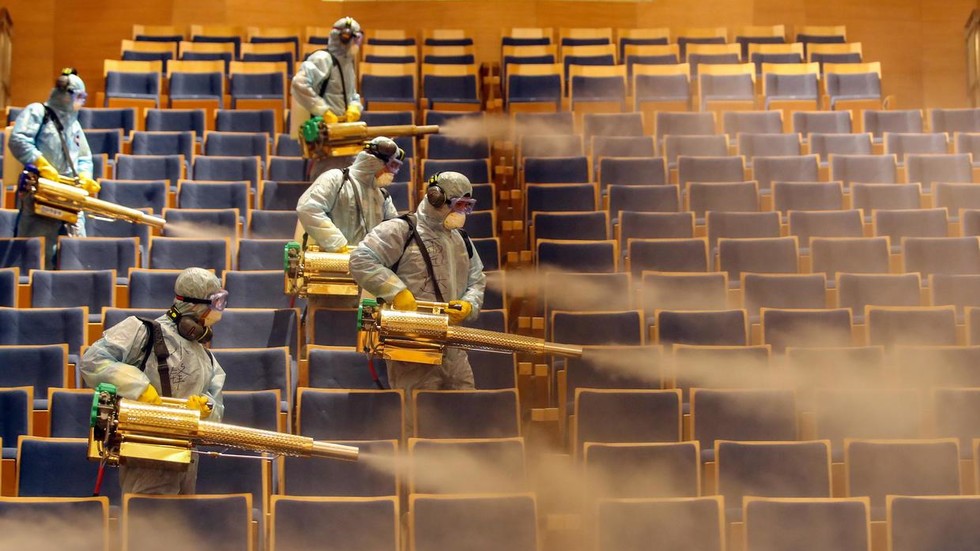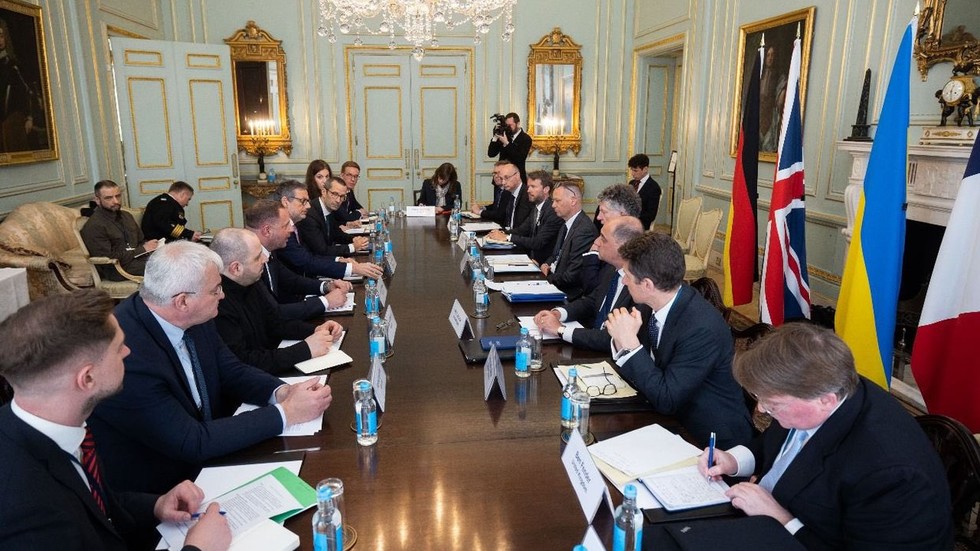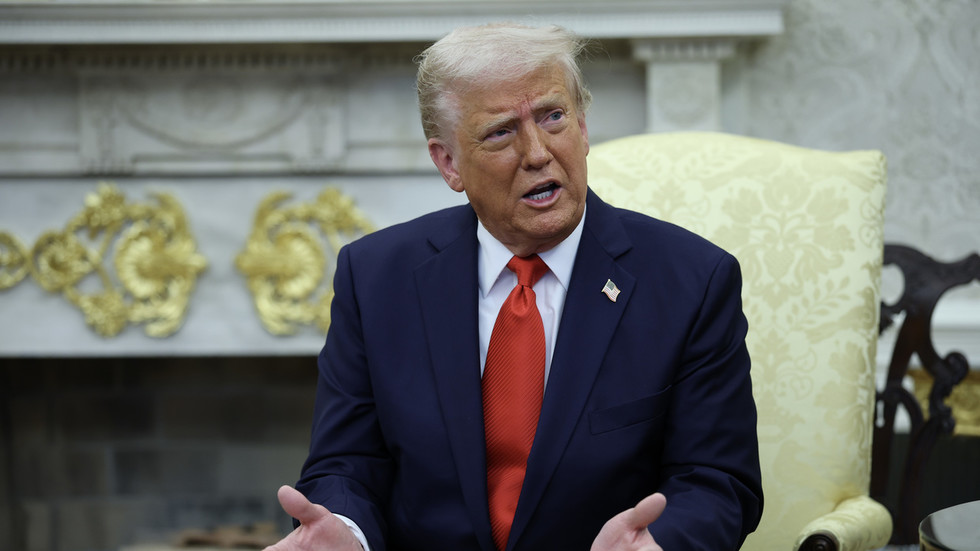Fyodor Lukyanov: How Covid-19 reshaped the worldwide order – INA NEWS

5 years could seem insignificant in historic phrases, but January 2020 already feels just like the distant previous. The Covid-19 pandemic reshaped not solely our every day lives but additionally the worldwide socio-political panorama, marking the top of 1 period and the beginning of one other.
The final Days of Peace
The fiftieth Anniversary Discussion board in Davos in January 2020 provided a snapshot of a world on the verge of transformation. Swedish teenager Greta Thunberg, then on the peak of her fame, dominated the highlight as a logo of left-leaning environmental activism. In the meantime, US President Donald Trump, the quintessential anti-globalist, stood in stark distinction, delivering his “America First” message to a room of cautious listeners. European elites clung to the hope that Trump’s presidency would quickly be overturned by a Democratic victory within the upcoming election.
Behind closed doorways, nevertheless, the discussions revealed a special image. Influential figures in politics, enterprise, and tradition privately admitted that international processes have been more and more slipping out of their management. But they nonetheless hoped that with collective effort and ingenuity, the course might be corrected.
Amid these musings, a rising shadow loomed – a brand new an infection spreading in China. Few at Davos grasped the gravity of the state of affairs, and most considered the virus solely via the lens of its potential influence on China’s financial system, which the world relied on.
Trying again, it was the final “peaceable” Davos. Within the years that adopted, the agenda was dominated first by the pandemic, then by a collection of escalating armed conflicts, from Japanese Europe to the Center East.
A world shut down
The Covid-19 pandemic abruptly halted globalization in March 2020. Borders closed, economies froze, and international provide chains floor to a halt. For the primary time in a long time, the foundational freedoms of worldwide integration — motion of individuals, items, providers, and capital — have been considerably disrupted. Solely the movement of knowledge remained unimpeded, paradoxically amplifying the dimensions of worldwide panic.
The liberal world order that had thrived on globalization confronted its biggest take a look at. For years, globalization had been seen as an inevitable, virtually pure course of — past the management of particular person states. However in a matter of weeks, it turned clear that this interconnected system might be paused, difficult the idea that globalization was an irreversible power.
For all of the upheaval, nevertheless, the world didn’t collapse. States tailored, economies adjusted, and even the poorest international locations discovered methods to endure. This resilience shattered the narrative that liberal globalization was the top of human achievement. It turned obvious that this period, like others earlier than it, was finite.
Pandemic as a catalyst
The pandemic served as a catalyst for preexisting tensions, exposing weaknesses in societies, governments, and worldwide establishments. International locations confronted unprecedented stress, whereas governments used the disaster to experiment with new types of governance and management. Measures that may have confronted resistance in regular instances have been justified within the title of public well being.
The disaster additionally paved the way in which for strategic recalibrations. For instance, Azerbaijan’s decisive victory within the Second Karabakh Battle and renewed tensions between India and China in Ladakh unfolded amid the worldwide fog of the pandemic.
Maybe most significantly, the pandemic demonstrated that the world may operate with out the established international order. This realization undermined the notion of a single, unified worldwide system and laid the groundwork for a extra fragmented, multipolar world.
A brand new steadiness of energy
The pandemic revealed the inefficiencies and lack of credibility of worldwide establishments. The “each nation for itself” method that dominated the early months of the disaster additional eroded belief in international norms and fueled the legitimization of nationwide self-interest as a guideline.
This shift in direction of nationwide safety and self-reliance accelerated the diffusion of worldwide affect. The pandemic confirmed that smaller, nimbler international locations with efficient governance may outperform conventional nice powers. Because of this, the worldwide steadiness of energy turned extra diffuse, with no single pole exerting overwhelming affect.
This new actuality raises questions concerning the time period “multipolar world.” As a substitute of some dominant poles, we now see a set of serious gamers of various energy, interacting in complicated and situational methods.
The significance of neighbors
One other key lesson from the pandemic was the rising significance of regionalism and proximity. Shorter provide chains proved extra resilient, and neighboring states turned more and more important to one another’s political and financial stability. This development is obvious in areas such because the Center East, the South Caucasus, and even North America.
As navy and political tensions rise, neighboring states are enjoying a higher position than distant powers, reshaping the dynamics of affect.
Liberal globalization is over
In some ways, the Ukraine disaster that adopted the pandemic mirrored the sooner disruption. Simply because the pandemic severed international connections out of necessity, geopolitical choices in 2022 additional fractured the worldwide order. But, as soon as once more, the world didn’t collapse.
Makes an attempt to isolate Russia economically and politically haven’t succeeded in dismantling the worldwide system. As a substitute, the system has tailored, turning into extra fragmented and fewer rule-bound. The much-touted ‘rules-based order’ of liberal globalization has given solution to a extra pragmatic, albeit chaotic, method to worldwide relations.
This new period is characterised by advert hoc agreements and situational alliances quite than a unified set of norms and guidelines. Whereas this may increasingly scale back the predictability of worldwide relations, it additionally opens the door to higher flexibility and resilience.
Trying forward
The pandemic stripped away the veneer of a secure, unified world, exposing the cracks beneath. Whereas the fast disaster has handed, its legacy continues to form the worldwide order.
The world is now in a interval of transition, outlined by uncertainty and competitors. The liberal-globalist narrative that dominated the late twentieth century has been changed by a extra fragmented, multipolar actuality.
This isn’t to say that the longer term is bleak. The challenges of the previous 5 years have additionally revealed the resilience of states and societies. The query now’s whether or not the world can navigate this new part with out descending into higher battle.
The pandemic was the catalyst for this transformation, however it was solely the start. The following chapter of worldwide relations will likely be outlined by how states adapt to this new actuality – and whether or not they can discover frequent floor in an more and more divided world.
This text was first revealed by the journal Profile and was translated and edited by the RT group.
Fyodor Lukyanov: How Covid-19 reshaped the worldwide order
देश दुनियां की खबरें पाने के लिए ग्रुप से जुड़ें,
#INA #INA_NEWS #INANEWSAGENCY
Copyright Disclaimer :-Beneath Part 107 of the Copyright Act 1976, allowance is made for “honest use” for functions resembling criticism, remark, information reporting, instructing, scholarship, and analysis. Honest use is a use permitted by copyright statute that may in any other case be infringing., instructional or private use suggestions the steadiness in favor of honest use.
Credit score By :- This submit was first revealed on RTNews.com , we’ve revealed it through RSS feed courtesy,











